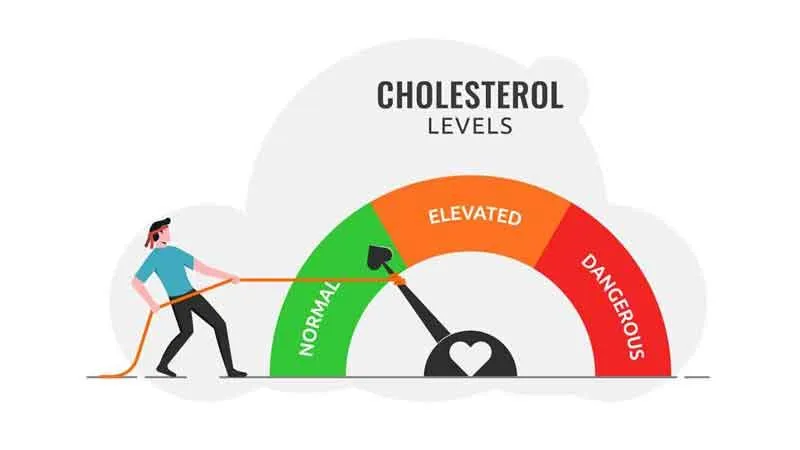
The Influence of Cholesterol Levels
Understanding the role of cholesterol in determining life insurance rates is crucial for anyone looking to secure a policy. Elevated cholesterol levels are a significant risk factor for cardiovascular diseases, which insurers take seriously when assessing policy applications.
What is Cholesterol?
Cholesterol is a waxy substance in your blood essential for building cells and producing hormones. However, excessive cholesterol can lead to severe health issues:
High-density lipoprotein (HDL), or "good" cholesterol, helps remove other forms of cholesterol from your bloodstream.
Low-density lipoprotein (LDL), or "bad" cholesterol, can build up in your arteries, increasing the risk of heart disease and stroke.
High Cholesterol Risks
High cholesterol typically shows no obvious symptoms, making regular testing vital. It can cause arteries to narrow or become blocked, significantly increasing the risk of a heart attack or stroke. Factors influencing cholesterol levels include age, gender, and ethnicity.
Getting Tested
Recent studies indicate that over 50% of American adults have high or borderline-high cholesterol levels, emphasizing the importance of regular screening. Simple lifestyle changes, such as diet and exercise, can effectively manage cholesterol levels.
Cholesterol's Impact on Life Insurance Rates
When applying for life insurance, insurers will assess your cholesterol through medical tests. Here’s how your cholesterol levels can affect your premiums:
Cholesterol Test Breakdown: This test measures total cholesterol, HDL, LDL, and triglycerides. Ideal levels for securing favorable life insurance rates include a total cholesterol below 200 mg/dL and a favorable HDL to LDL ratio.
Rating Categories:
Preferred Plus: Total cholesterol under 200, LDL/HDL ratio under 5.0.
Preferred: Total cholesterol under 220, LDL/HDL ratio under 5.5.
Standard Plus: Total cholesterol under 240, LDL/HDL ratio under 6.0.
Standard: Total cholesterol under 260, LDL/HDL ratio under 7.0.
Substandard: Elevated cholesterol levels leading to rates 50% or more above standard.
Decline: Extremely high cholesterol levels (e.g., Total 400+) may result in uninsurability.
Medication Factors
While some insurers prefer cholesterol controlled without medication for the best rates, others accept medicated individuals as long as the cholesterol levels are well-managed.
How to Lower Cholesterol
Lowering cholesterol is crucial not just for better life insurance rates but also for overall health. The American Heart Association recommends:
Adopting a heart-healthy diet rich in fruits, vegetables, whole grains, and lean protein.
Regular physical activity.
Managing blood pressure and blood sugar levels.
Losing excess weight.
Quitting smoking.
If lifestyle changes are insufficient, medications such as statins may be prescribed. These are effective in managing cholesterol but come with potential side effects, so they should be considered after exploring natural methods.
Securing Life Insurance with High Cholesterol
High cholesterol does not automatically disqualify you from obtaining life insurance. By actively managing your cholesterol and improving your health profile, you can still secure coverage with reasonable premiums. Life insurance companies consider multiple factors when determining rates, and demonstrating effective cholesterol management can significantly impact your offered terms.
In conclusion, proactive health management and understanding the implications of cholesterol on life insurance premiums are essential. By taking control of your health and understanding your insurance options, you can ensure financial security for your family while managing any health risks associated with high cholesterol. Prioritize securing a life insurance policy that offers adequate coverage at an affordable cost, and take action to safeguard your family’s future today.
About Us
TermLifeProvider | Home of HassanHelps is a leading life insurance brokerage with the best rates from top insurers. With over 16 years, we've helped thousands save on life insurance.
We've seen many clients struggle with weight and related health issues like sleep apnea, diabetes, high blood pressure, arthritis, and heart disease. By educating our clients on how these health issues affect life insurance costs, we aim to improve their health and reduce their premiums.
© 2025 HassanHelps.com

